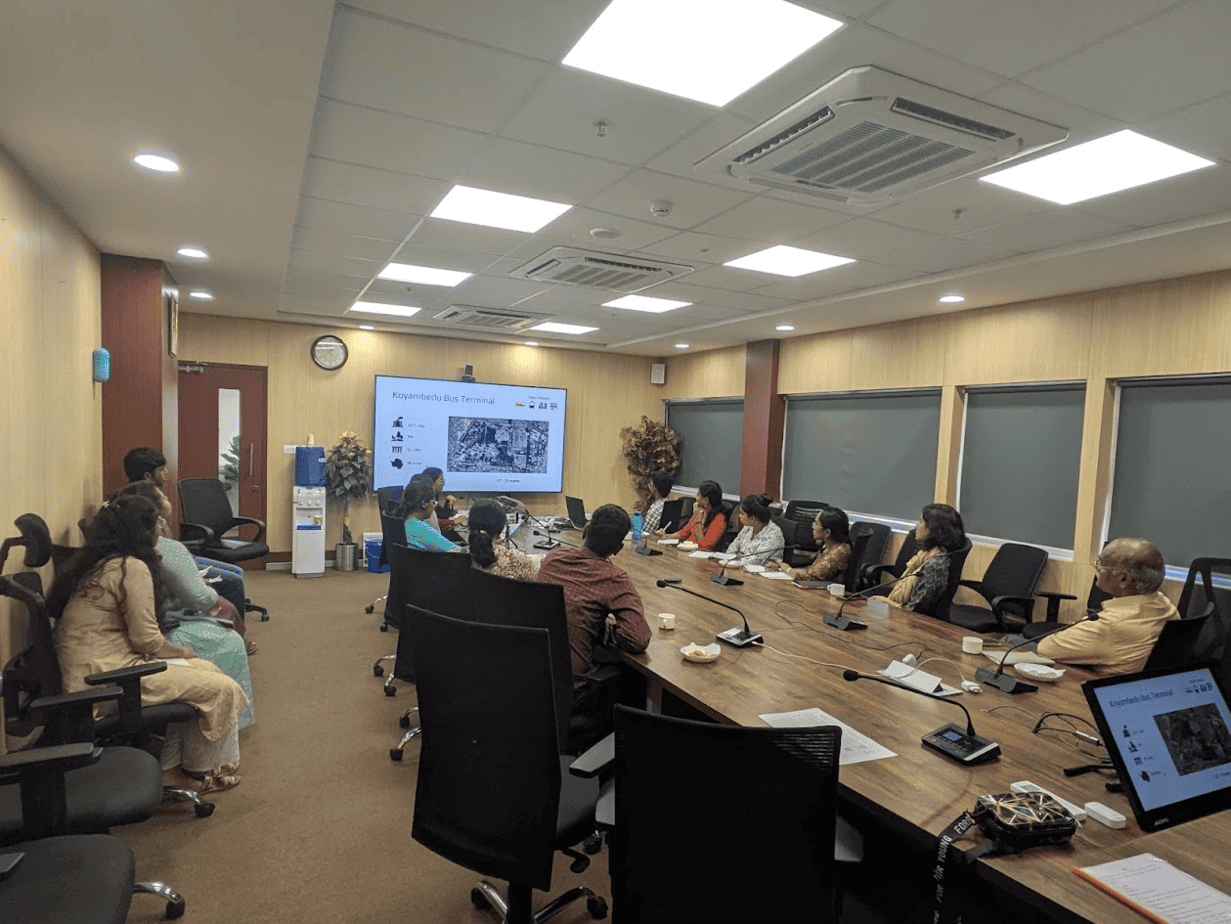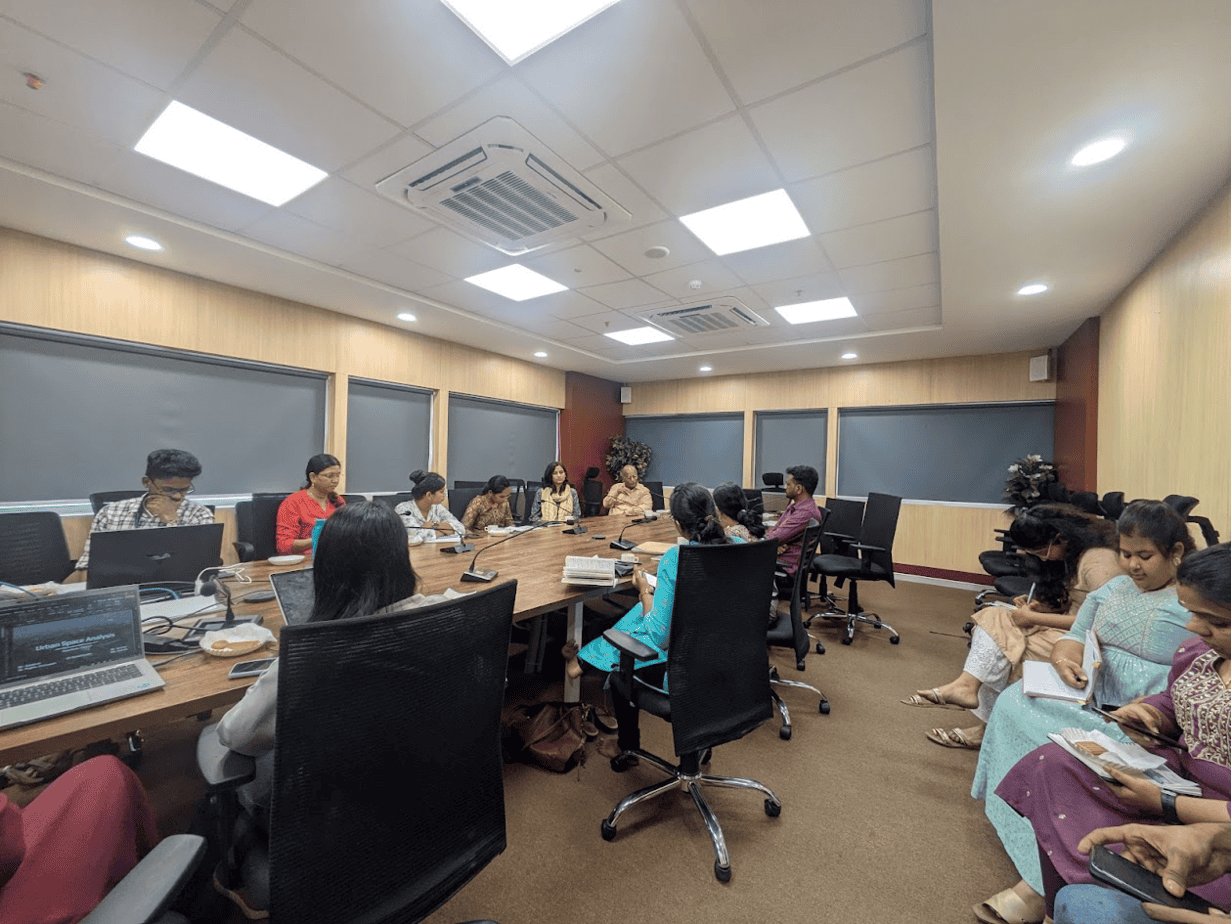On 25th January, the team from Oorvani and the Open City data community presented their findings related to Chennai’s urban heat issues to the Chennai Metropolitan Development Authority (CMDA). Dr. Jayapal who heads the Urban Heat study for Third Master Plan preparation was there along with his team.
The findings were outputs from the Open City datajam held in Chennai on September 28th, 2024. The datajam was on the topic of “Urban Heat in Chennai”, organised in partnership with C40 Cities, CAG Chennai, Reach the Unreached and Poovulagin Nanbargal, and was facilitated by Armaan RM, an independent GIS Specialist. The event was conducted in DLF IT Park near Manapakkam, facilitated by Naren Sundram of Sagent M&C India Pvt Ltd.
In the all-day event, 32 participants from diverse backgrounds – GIS experts, developers, architects, students of planning from Anna University, social workers and people who work at the ground level – looked at six wards using satellite data, both current as well as historic to understand how the city of Chennai has changed in the last 10 years, how these changes have manifested in terms of changes in built-up area, green cover and how these changes have driven the heat stress in the city.
At the meeting with CMDA, Swaminaatha Krishnan presented his team’s output on analysing heat stress in Villivakkam ward. Mokshavathi and Azeera presented their outputs on heat stress in Koyambedu ward. Vaidya of OpenCity then presented the output from the team who analysed Perungudi ward.

Dr Jayapal underscored that the issues raised by the various teams were very much on the mind of CMDA, and they are taking it into consideration as they are working on the next Chennai Master Plan. “Each master plan is for 15 years, so if we miss this opportunity to address important issues like urban heat, we will have lost the chance which will come again only after 15 years,” he said.
On the topic of Urban Heat, he said that the CMDA has installed hundreds of temperature sensors at different parts of the city, green spaces, markets, residential areas, etc to cover a diverse set of land uses. These sensors are collecting information on an hourly basis 24/7 and they have provided a lot of data which will be used in drafting the next Master Plan, he said.
Dr. Jayapal was interested in the process of datajams and was glad that people were showing interest in topics concerning the city to the extent of engaging with it and proposing solutions. He said they would be interested in participating in future events. We look forward to collaborating with Dr. Jayapal and his team!

